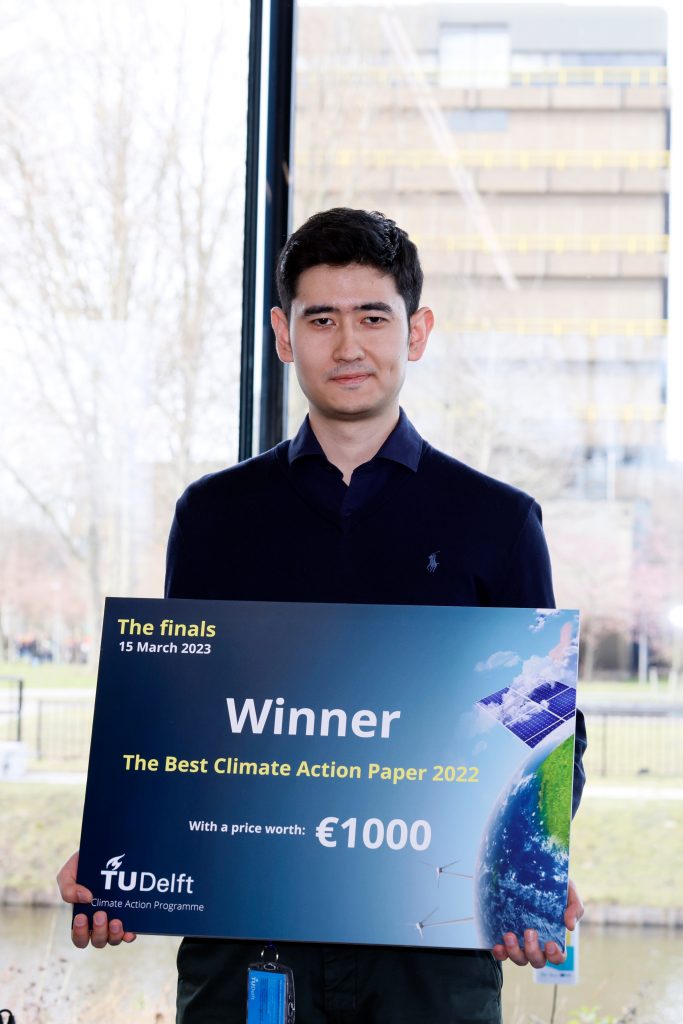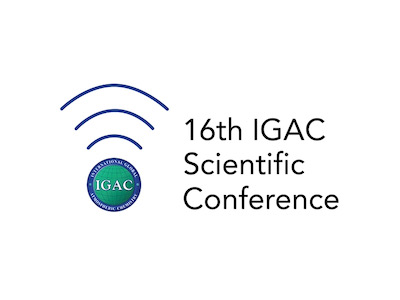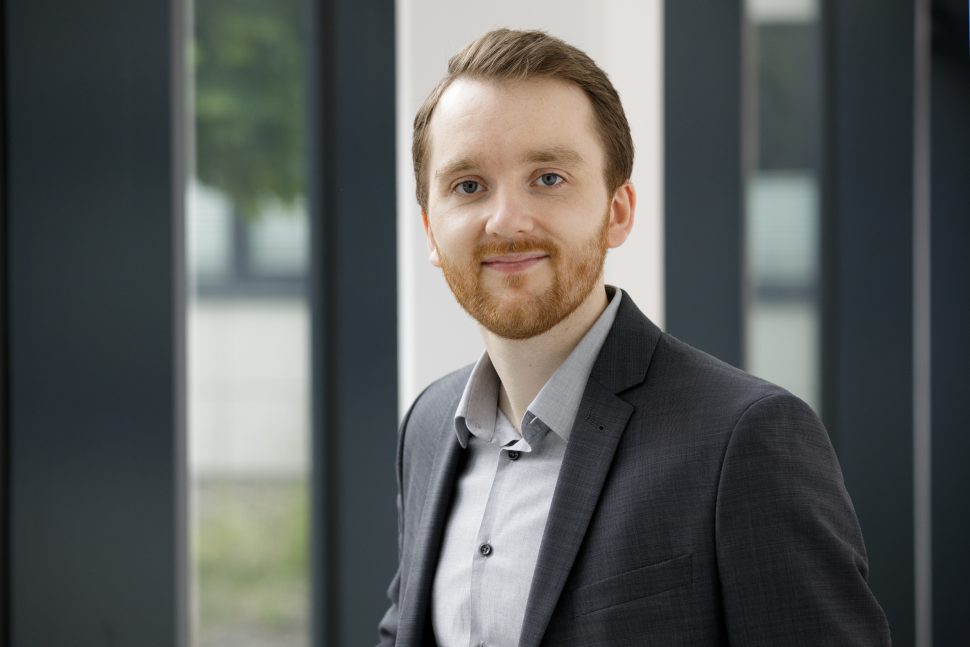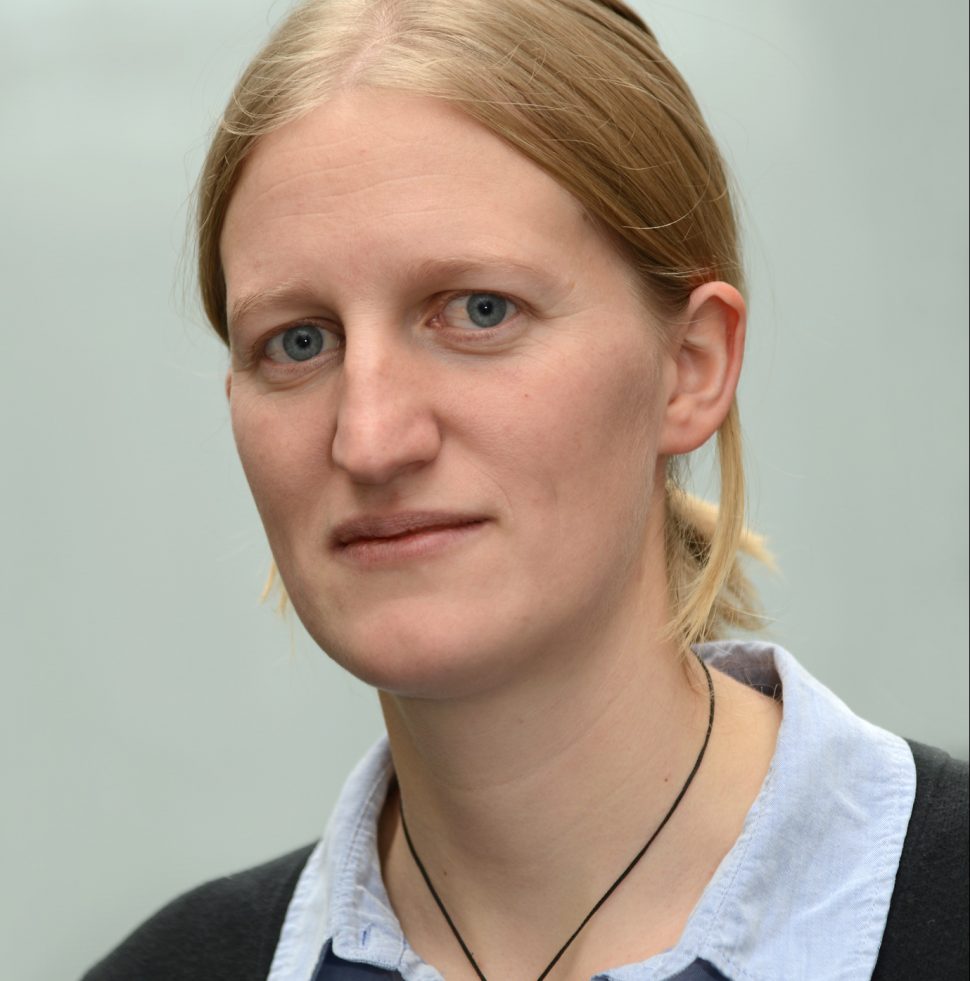RRD Innovation Award 2023
The LuFo project DoEfS – a cooperation of the DLR Institute of Atmospheric Physics and the DLR facility Flight Experiments with Rolls-Royce Deutschland (RRD) – has received the RRD Innovation Award 2023 (2nd place, category “Engineering Innovation”). Based on data on atmospheric environmental conditions derived at DLR from simulations with the global chemistry-climate model EMAC and airborne measurements, Rolls-Royce Deutschland developed a methodology in the project to optimize the maintenance cycles of aircraft engines.
Highlight paper in Geoscientific Model Development
The publication “Emulating lateral gravity wave propagation in a global chemistry–climate model (EMAC v2.55.2) through horizontal flux redistribution” by Roland Eichinger et al. (https://doi.org/10.5194/gmd-16-5561-2023) was selected as Higlight paper in the open access journal “Geoscientific Model Development”.
The Executive Editor: “Grave wave (GW) parameterisations currently used in state-of-the-art weather and climate models are based on a purely columnar approach, which does not allow for any horizontal propagation of GWs and has been identified as potential source of systematic biases in the simulation of middle atmospheric dynamics. The study by Eichinger and colleagues presents now a computationally efficient method to emulate the effects of lateral propagation of orographic GWs in climate models by horizontal momentum flux redistribution using redistribution maps derived from a GW ray-tracing model. The presented approach is an important step towards a better representation of orographic GWs in climate models, which might improve long-standing problems in atmospheric modelling.”
The publication is available as open access: Eichinger, R., Rhode, S., Garny, H., Preusse, P., Pisoft, P., Kuchař, A., Jöckel, P., Kerkweg, A., and Kern, B.: Emulating lateral gravity wave propagation in a global chemistry–climate model (EMAC v2.55.2) through horizontal flux redistribution, Geosci. Model Dev., 16, 5561–5583, https://doi.org/10.5194/gmd-16-5561-2023, 2023.
Publication shortlisted for ACP Paul Crutzen Award 2022
The Paul Crutzen Award recognizes outstanding publications in ACP that advance the understanding of atmospheric chemistry and physics. This year the ACP highlight paper “The climate impact of hydrogen-powered hypersonic aircraft” by Johannes Pletzer et al. has been on the shortlist for the 2022 award with five other publications.
The publication is available as open access: Pletzer, J., Hauglustaine, D., Cohen, Y., Jöckel, P., and Grewe, V.: The climate impact of hydrogen-powered hypersonic transport, Atmos. Chem. Phys., 22, 14323–14354, https://doi.org/10.5194/acp-22-14323-2022, 2022.
More information on the Paul Crutzen Publication Award is available in the press release of ACP.
Further information on the publication can be found here.
Best Climate Action Paper of 2022

Jin Maruhashi receives the Best Climate Action Paper 2022 of TU Delft for the publication on transport patterns of aviation NOx and O3. The award was presented during the Best Climate Action or Energy Paper 2022 Ceremony at TU Delft on 15. March 2023.
The jury highlights “[…] Jin’s neurological machine learning model that allows you to map – excellently – the climate effect of aviation. With the knowledge Jin’s model gives us, we hope to get a better grip on the role of nitrogen oxides (NOx) on global warming, for example.”
Non-CO₂ emissions of aviation play an important role affecting global warming. The warming effect of nitrogen oxide (NOx) emissions carries large uncertainties. Jin Maruhashi used an otherwise purely geometric machine learning algorithm used by neuroscientists to find nerve bundles in the brain to find patterns in terrabytes of data from detailed global-scale simulations. He shows that seasonality plays an important role, and that flight trajectories coinciding with downward drafts in earth’s atmosphere have a reduced global warming effect. His research may eventually be used to optimise flight trajectories and altitudes taking into account a global warming perspective, rather than mainly fuel consumption.
Read more on Jin’s work on TU Delft stories about Climate neuroscience for aviation.
The publication is available from the open access journal ACP: Maruhashi, J., Grewe, V., Frömming, C., Jöckel, P., and Dedoussi, I. C.: Transport patterns of global aviation NOx and their short-term O3 radiative forcing – a machine learning approach, Atmos. Chem. Phys., 22, 14253–14282, https://doi.org/10.5194/acp-22-14253-2022, 2022.
Best Climate Science Paper of 2022
Jin Maruhashi receives the Best Climate Science Paper 2022 of TU Delft for the publication on transport patterns of aviation NOx and O3. The paper is now running for the Best Climate Action Paper of 2022.
The publication is available from the open access journal ACP: Maruhashi, J., Grewe, V., Frömming, C., Jöckel, P., and Dedoussi, I. C.: Transport patterns of global aviation NOx and their short-term O3 radiative forcing – a machine learning approach, Atmos. Chem. Phys., 22, 14253–14282, https://doi.org/10.5194/acp-22-14253-2022, 2022.
Information on the “Best Climate Action & Energy Paper Award 2022” is available on the TU Delft website.
Jülich Exzellenzpreis 2022
Dr. Simon Rosanka receives the “Jülich Exzellenzpreis 2022” for his research on the hydroxyl radical (OH). The hydroxyl radical is the so-called “detergent of the atmosphere”, responsible for the atmospheric self cleaning potential from several pollutants. In his dissertation Dr. Rosanka explored the influence of oxygen-containing, volatile organic compounds on the composition of the atmosphere, making a significant contribution to understanding hydroxyl chemistry.
Utilising global chemical transport models and developing a detailed representation of liquid-phase chemical processes, he was able to quantify in particular the contribution of clouds as a sink for ozone in the troposphere.
Further information on the “Jülich Exzellenzpreis 2022” and the awardees can be found in the press release of Forschungszentrum Jülich (in German only).
Honorary Mentions at the IGAC 2021 Conference

The posters by Simon Rosanka et al. and by Mariano Mertens et al. receives an Honorary Mention at the IGAC 2021 Conference:
Simon Rosanka, Rolf Sander, Bruno Franco, Catherine Wespes, Andreas Wahner, Domenico Taraborrelli: Oxidation of low-molecular-weight organic compounds in cloud droplets: global impact on tropospheric oxidants and other trace gases, Poster TOAR-10A, IGAC 2021 Conference, 2021. Corresponding papers: https://doi.org/10.5194/gmd-14-4103-2021 and https://doi.org/10.5194/acp-21-9909-2021
Mariano Mertens, Patrick Jöckel, Sigrun Matthes, Matthias Nützel, Volker Grewe, Robert Sausen: Covid-19 induced lower-tropospheric ozone changes, Poster COVID-18C, IGAC 2021 Conference, 2021. Corresponding paper: http://iopscience.iop.org/article/10.1088/1748-9326/abf191
Bernd Rendel-Prize 2021

© Ralf-Uwe Limbach/Forschungszentrum Jülich GmbH
The Bernd Rendel-Prize is awarded by the German Research Foundation (Deutsche Forschungsgemeinschaft, DFG) for conducting promising and original geoscientific research at the beginning of the researcher’s career. The DFG awards Simon Rosanka the Bernd Rendel-Prize 2021 for quantifying the contribution of clouds as a sink for tropospheric ozone and making a significant contribution to ensuring that organic acids in the troposphere are no longer underestimated. He achieved this by developing the Jülich Aqueous-phase Mechanism of Organic Chemistry (JAMOC), a detailed aqueous-phase oxidation scheme for oxygenated volatile organic compounds and implementing it into the scavenging submodel (SCAV) of MESSy.
Read a short portrait of the 2021 laureate Simon Rosanka on the DFG website.
WCRP/WWRP International Prize for Model Development 2020

Hella Garny (DLR) receives the WCRP/WWRP International Prize for Model Development 2020.
One of Hella’s model developments is the EMIL operation mode of EMAC . It is a dry dynamical core model set-up within the MESSy framework, denoted as ECHAM/MESSy IdeaLized (EMIL) model setup. EMIL is developed with the aim to provide an easily accessible idealized model set-up that is consistently integrated in the MESSy model hierarchy.
Read the corresponding publication on the EMIL model setup: Garny, H., Walz, R., Nützel, M., and Birner, T.: Extending the Modular Earth Submodel System (MESSy v2.54) model hierarchy: the ECHAM/MESSy IdeaLized (EMIL) model setup, Geosci. Model Dev., 13, 5229–5257, https://doi.org/10.5194/gmd-13-5229-2020, 2020.
Best paper award at the ICRAT 2018 conference
Feijia Yin (TU Delft) et al. receive the Best paper award at the ICRAT 2018 conference.
Feijia Yin, Volker Grewe, Jesper van Manen, Sigrun Matthes, Hiroshi Yamashita, Florian Linke, Benjamin Lührs, Verification of the ozone algorithmic climate change functions for predicting the short-term NOx effects from aviation en-route, USA & EUROPA ICRAT 2018, Number 54, Barcelona, June 26-29, 2018.
ABC/J Young Academics Award 2016
Charlotte Hoppe (FZJ) receives the ABC/J Young Academics Award 2016 for her Dissertation entitled “A Lagrangian transport core for the simulation of stratospheric trace species in a Chemistry Climate Model”.
The ABC/J Young Academics Award is granted by the Geoverbundes ABC/J for outstanding, innovative and interdisciplinary work at the beginning of a scientific carreer. Charlotte Hoppe’s work describes the coupling of the Lagrangian model CLaMS (Chemistry Lagrangian Model of the Stratosphere) with the chemistry-climate model EMAC.
Aviation Award 2014

Volker Grewe, Sigrun Matthes and coauthors receive the Aviation Award 2014 for their study on the “Reduction of air traffic contribution to climate change: A REACT4C case study”. The project REACT4C investigated trans-Atlantic air traffic and analysed, which routing changes were required to achieve a reduction in the air traffic’s contribution to climate change by combining a detailed climate-chemistry model (EMAC) and a detailed air traffic model (SAAM).
See a video on climate optimized flight trajectories (in German).
Read the corresponding publication on flight trajectory optimization: Volker Grewe, Thierry Champougny, Sigrun Matthes, Christine Frömming, Sabine Brinkop, Ole Amund Søvde, Emma A. Irvine, Lucia Halscheidt,
Reduction of the air traffic’s contribution to climate change: A REACT4C case study, Atmospheric Environment, 94, 616-625, https://doi.org/10.1016/j.atmosenv.2014.05.059, 2014.
Heinz Billing Award for the Advancement of Scientific Computation

Patrick Jöckel and Rolf Sander received the 2005 Heinz Billing Prize for the Advancement of Scientific Computation for the invention and design of MESSy. The award was presented to the awardees on 17. November 2005 in Göttingen during the 22nd IT User Meeting of the Max-Planck-Institutes.
The laudatio (in German) and the accompanying overview article about the Modular Earth Submodel System can be found in GWDG report No. 69 on Research and Scientific Computing (pdf).
